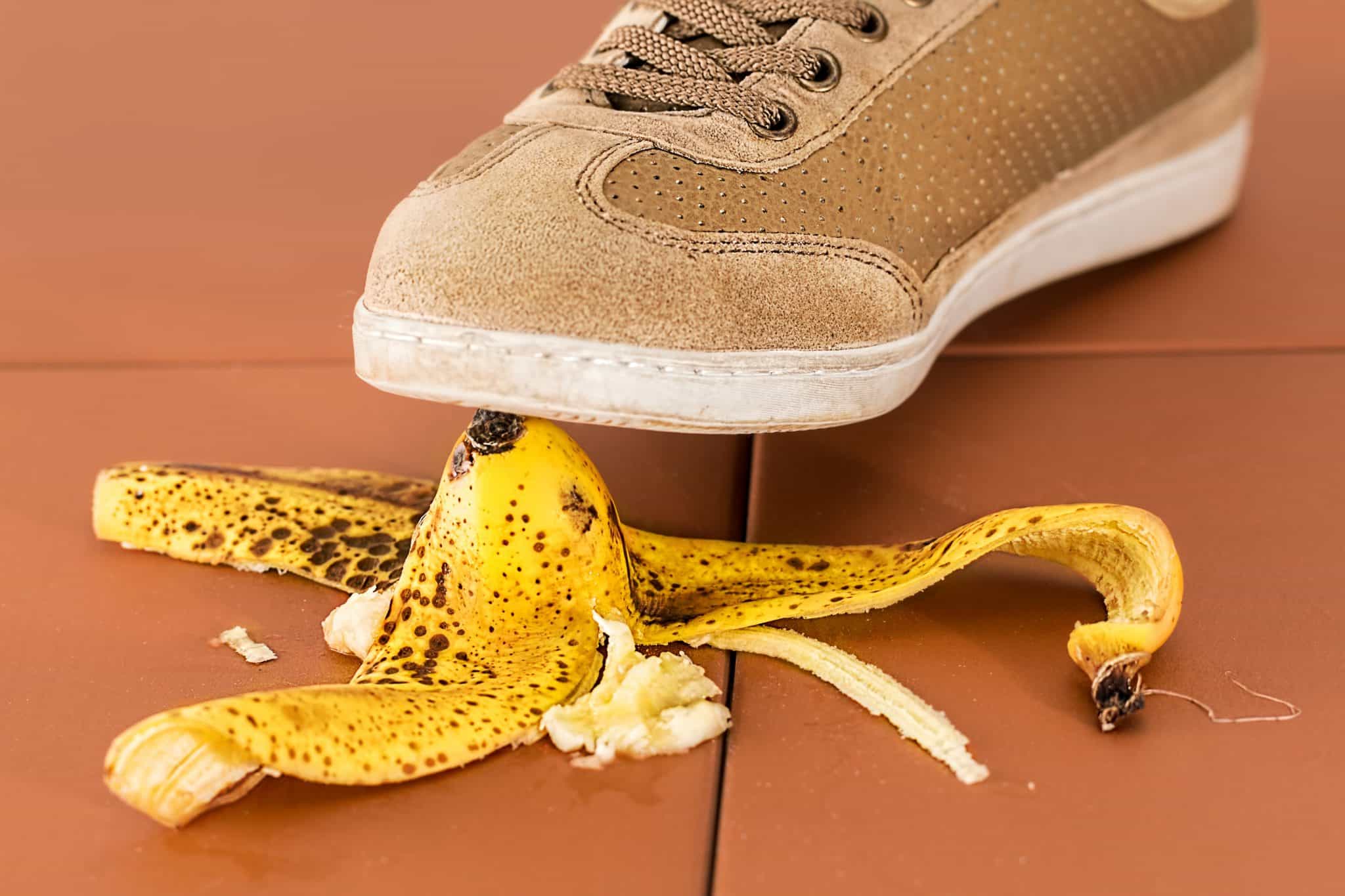Winter has arrived and that means walking can be treacherous when sidewalks, roadways, and stairs are covered in snow and ice. Slips and falls can occur at any time of the year due to wet surfaces, poorly constructed steps, uneven sidewalks, and improperly maintained floors, but winter inevitably sees a spike in these types of injuries.
If you are injured in a slip and fall you may have the right to receive compensation from the “occupier” of the property where you fell.
Occupier’s Obligation
An occupier’s obligation for the maintenance of private or commercial property in Ontario is governed by section 3(1) of the Occupier’s Liability Act which states as follows:
An occupier of premises owes a duty to take such care as in all the circumstances of the case is reasonable to see that persons entering on the premises, and the property brought on the premises by those persons are reasonably safe while on the premises.
Who is an occupier?
An “occupier” is defined by section 1 of the Occupier’s Liability Act as:
A person who is in physical possession of premises… or a person who has responsibility for and control over the condition of premises or the activities there carried on, or control over persons allowed to enter the premises, despite the fact that there is more than one occupier of the same premises.
This means that even though you may not own the property which you rent, you may be responsible for its maintenance and therefore may be liable in the event that someone is injured on those premises.
Under the Occupier’s Liability Act any entity that meets the definition of “Occupier”, (including municipalities, our work buildings, our friends’ and family’s homes, shopping malls, restaurants, and event venues) has a legal responsibility to make that sure that their premises are kept reasonably safe for visitors. Occupiers therefore need to be careful in keeping up their property. Liability in slip or trip cases turns on whether the occupier acted carefully so that slipping or tripping was not likely to happen. Another consideration is whether you were careless because you did not see or avoid the thing that caused you to fall.
Determining Liability
Here are some general rules to help determine whether an occupier was at fault for a slip and fall injury.
To be legally responsible for the injuries suffered from someone slipping or tripping and falling on their property, one of the following must be apply:
- The occupier or an employee must have caused the spill, worn or torn spot, or other slippery or dangerous surface or item to be present.
- The occupier or an employee must have known of the dangerous surface condition but done nothing about it.
- The occupier or an employee should have known of the dangerous surface because a “reasonable” person taking care of the property would have discovered it and removed or repaired it.
The last situation is the most common. Unfortunately is also less black and white than the first two because of those troublesome words “should have known.” Liability in these cases is often decided by common sense. Judges and juries determine whether the occupier or occupier of property was careful by deciding if the steps the occupier or occupier took to keep the property safe were “reasonable” in their opinion.
What Is “Reasonable”?
Success in many claims based on negligence depends on whether or not the defendant acted reasonably. The law focusses on whether the occupier made regular and thorough efforts to keep the property safe and clean in determining whether an occupier acted reasonably. Here are some initial questions the court will ask in determining whether a property or business occupier may be liable for slip or trip and fall injuries:
- Did the injured party tripped over a torn, broken, or bulging area of carpet, floor, or ground, or slipped on a wet, icy, or loose area? If so had the dangerous condition been there long enough that the occupier should have known about it and fixed it?
- Did the property occupier have a regular procedure for examining, maintaining, cleaning or repairing the premises? If so, what proof does the occupier have of this regular maintenance? Maintenance logs can be important evidence on this issue.
- If the fall was caused by the presence of an object on the floor was there a safer place the object could have been located, or could it have been placed in a safer manner, without much greater inconvenience or expense to the property occupier?
- Could a simple barrier have been created or a warning been given to prevent people from entering the area where there was a risk of slipping or tripping?
- Did poor or broken lighting contribute to the accident?
If the answers to one or more of these questions favours the injured person then they may have a good claim for compensation. However, the court must still consider whether their own carelessness contributed in any significant way to the accident.
Preventing Liability
Whether an occupier took reasonable care in the circumstances can vary on a case by case basis. For example, the standard of care required can be different for occupiers of residential property and occupiers of commercial property. Since the standard of care of occupiers is that of reasonableness and not perfection not every case of a slip and fall causing injury will necessarily give rise to a successful lawsuit. Where an occupier can show that it took reasonable steps to prevent the harm, it may be absolved of all liability and will not be required to pay any damages.
Home Occupiers
A home occupier should take the following steps to reduce the risk that they will be held liable if someone falls on their property:
- quickly clean up spills
- fix damaged railings and steps
- ensure proper lighting is in place
- clear snow and ice from sidewalks and areas leading to entrance of the premises
- remove icicles
- sand or salt icy or snowy areas as frequently as necessary
- ensure you have sufficient policy limits in your home owner’s policy (speak to your broker)
Commercial Property Occupiers
In addition to the measures outlined above for home owners, commercial occupiers should also do the following:
- erect ‘wet floor’ signs and other notices to warn patrons of potential hazards
- close off sections of your premises if they pose a potential threat to patrons
- implement inspection protocols
- keep maintenance records
- hire and train maintenance staff
- alternatively hire an independent contractor and specifically outline the terms of the contractor’s responsibilities (although this does not necessarily discharge an occupier/occupier from its responsibilities – consult a lawyer to determine what should be in this contract)
Injured Parties Carelessness
In almost every slip or trip and fall case, the court must decide whether the injured party’s carelessness contributed to the accident. The rules of “comparative negligence” help measure their reasonableness (or lack thereof) in going where they did, in the way they did, just before the accident happened. There are some questions the court will ask the injured party about their conduct:
- Did they have a legitimate reason for being where the dangerous area was?
- Were they doing anything that distracted them from paying attention to where they were going?
- Were they running, jumping, or fooling around in a way that made falling more likely?
- Would a careful person have noticed the dangerous spot and avoided it, or walked carefully enough not to slip or trip?
- Were there any warnings that the spot might be dangerous?If it is found that the injured party’s careless conduct contributed to the cause of their slip and fall the amount of compensation they are entitled to receive will be reduced according the their share of fault or liability. Courts have reduced a plaintiff’s damages if they were not wearing their prescription glasses, were in a rush, were intoxicated, had their hands full or were otherwise distracted when the incident occurred.
In order to reduce the risk of a fall or having you damages reduced you should do the following:
- wear footwear that is suitable for the prevailing conditions (i.e. snow boots in winter)
- follow any posted signage regarding unsafe areas or areas to avoid
- use handrails and other safety devices that are available
- take the safest route and avoid areas marked as slippery or wet
- pay attention to your surroundings (don’t text and walk, etc.)
Prepare A Summary Of The Occurrence
If you have been injured in a slip and fall you should record the following information as soon as possible and keep a record of the following information in order for your lawyer to be in the best position to determine your chances of success and the amount of your potential damages:
- Prepare a general summary of the event including the time, date, cause and precise location of incident
- Take photographs of the general location of your fall and the hazard that caused you to trip or slip as well as of your injuries – a picture is worth a thousand words!
- Preserve the footwear you were wearing –take photos of the footwear including the soles
- If weather was a factor, such as a slip and fall on ice, note the weather conditions leading up to and at the time of the fall
- Report the incident to the property owner or property management immediately
- Get the name of the owner of the premises and if possible the name of any contractors hired to maintain the property
- Submit an incident report, leave a copy with the owner and keep a copy
- Get the names and contact information of any witnesses
- Make a list of the injuries you suffered as a result of the fall
- Keep a record of the treatment(s) you have received and are receiving for your injuries
- Keep a record of the name(s) of health care providers you are seeing for your injuries
- Keep a record of any out-of-pocket expenses associated with your injury such as mileage and parking costs for medical appointments, medication costs, physiotherapy, massage therapy costs, etc. and keep the receipts
- Keep a record of missed work or income opportunities
Consult A Lawyer ASAP
It is important that you consult a lawyer as soon as possible after an incident resulting in injuries from a slip or fall.
Since what is required to meet the standard of reasonableness will depend on the circumstances of each case it is best if you contact a lawyer promptly so that they can carry out the necessary investigation to determine whether the occupier failed to meet its standard of care in your particular situation. In addition you will want to retain your right to sue the occupier(s) and there are strict notice deadlines that apply in some situations. Your lawyer can insure that any deadline that applies to your case is met.
Conclusion
Slips and falls can cause serious injuries such as broken bones and head trauma that may prevent you from returning to work and require medical treatment. Compensation for pain and suffering and loss of income as well as other heads of damages may be available to you if you have suffered serious injuries as a result of a slip and fall incident. A prompt and thorough investigation of the circumstances of your fall will increase your chances of being successful in seeking compensation.
Ines Jelic is a personal injury lawyer in Ottawa and can be contacted by her direct phone number, 613-566-2055, or by email at ines.jelic@mannlawyers.com.








